
Ropewalks: Liverpool's Vibrant Cultural Hub
Ropewalks is a lively and eclectic area in the heart of Liverpool, renowned for its rich history and vibrant cultural scene. This neighbourhood is named after the long, straight streets that were once used for stretching and twisting ropes during the city's maritime heyday. Today, Ropewalks is a melting pot of creativity, where history meets modernity in a bustling urban landscape. Strolling through Ropewalks, you'll encounter an array of independent shops, quirky cafes, and stylish bars. Bold Street, the main thoroughfare, is a must-visit for its diverse selection of international cuisine, vintage boutiques, and artisan coffee shops. The street's bohemian vibe makes it a popular spot for both locals and tourists alike. Ropewalks is also home to some of Liverpool's most iconic cultural landmarks. The FACT (Foundation for Art and Creative Technology) offers a unique blend of contemporary art, film, and digital culture. For music enthusiasts, the area boasts a vibrant nightlife scene with venues like the Jacaranda and the Kazimier Garden, where live performances and DJ sets keep the energy high. Don't miss the chance to explore the area's rich architectural heritage. From the Georgian grandeur of the Bluecoat to the modernist lines of the Liverpool One development, Ropewalks is a testament to Liverpool's ability to blend the old with the new. Whether you're a history buff, a foodie, or a culture vulture, Ropewalks promises an unforgettable experience.
Local tips in Ropewalks
- Visit Bold Street for a diverse range of eateries and unique shops.
- Check out the FACT for contemporary art and film screenings.
- Explore the nightlife with live music at venues like the Jacaranda.
- Take a walk to admire the mix of Georgian and modern architecture.
- Don't miss the street art and murals scattered throughout the area.
Ropewalks: Liverpool's Vibrant Cultural Hub
Ropewalks is a lively and eclectic area in the heart of Liverpool, renowned for its rich history and vibrant cultural scene. This neighbourhood is named after the long, straight streets that were once used for stretching and twisting ropes during the city's maritime heyday. Today, Ropewalks is a melting pot of creativity, where history meets modernity in a bustling urban landscape. Strolling through Ropewalks, you'll encounter an array of independent shops, quirky cafes, and stylish bars. Bold Street, the main thoroughfare, is a must-visit for its diverse selection of international cuisine, vintage boutiques, and artisan coffee shops. The street's bohemian vibe makes it a popular spot for both locals and tourists alike. Ropewalks is also home to some of Liverpool's most iconic cultural landmarks. The FACT (Foundation for Art and Creative Technology) offers a unique blend of contemporary art, film, and digital culture. For music enthusiasts, the area boasts a vibrant nightlife scene with venues like the Jacaranda and the Kazimier Garden, where live performances and DJ sets keep the energy high. Don't miss the chance to explore the area's rich architectural heritage. From the Georgian grandeur of the Bluecoat to the modernist lines of the Liverpool One development, Ropewalks is a testament to Liverpool's ability to blend the old with the new. Whether you're a history buff, a foodie, or a culture vulture, Ropewalks promises an unforgettable experience.
Iconic landmarks you can’t miss
Royal Albert Dock Liverpool
Explore Royal Albert Dock Liverpool: A UNESCO World Heritage site blending history, culture, and stunning waterfront views in the heart of the city.
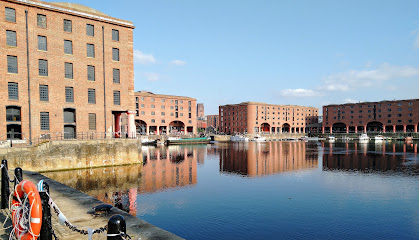
Liverpool Cathedral
Experience the grandeur and spiritual serenity of Britain’s largest cathedral with breathtaking views and rich cultural heritage.
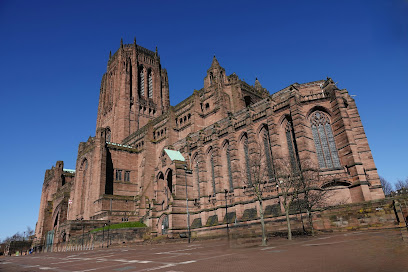
The Liverpool Waterfront
Explore the iconic Liverpool Waterfront, where stunning architecture meets vibrant culture along the River Mersey.
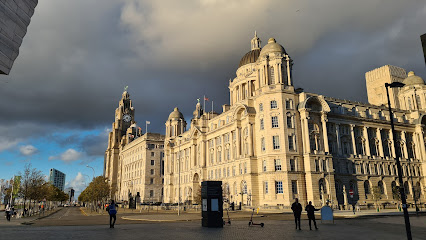
The Beatles Statue
Explore the iconic Beatles Statue at Pier Head, Liverpool, a monumental tribute to the legendary band that shaped music history.
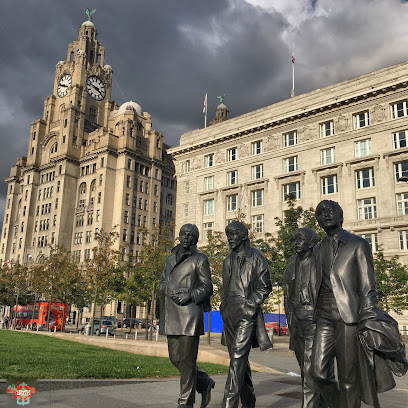
St Johns Beacon Viewing Gallery
Discover breathtaking views of Liverpool from St Johns Beacon Viewing Gallery, an iconic landmark blending history, culture, and stunning panoramas.
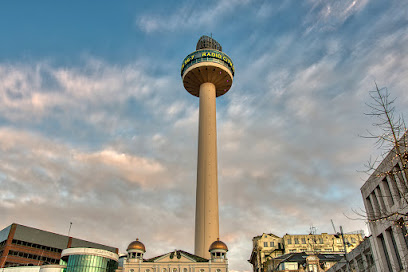
Quirky Quarter
Explore the vibrant Quirky Quarter in Liverpool, a hub of creativity, unique shops, and stunning street art that showcases the city's artistic spirit.
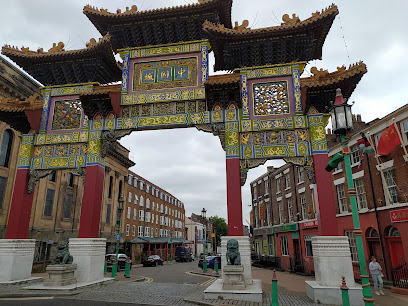
The Wall Of Fame - Mathew Street
Explore the Wall of Fame on Mathew Street, a vibrant tribute to music legends in the heart of Liverpool's cultural scene.
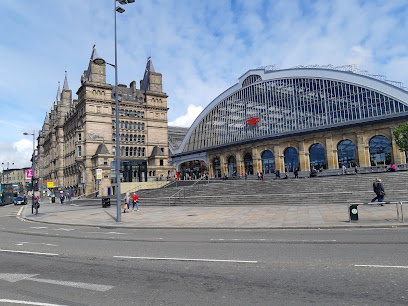
William MacKenzie's Tomb
Explore the tranquil beauty and historical significance of William MacKenzie's Tomb in Liverpool, a must-visit destination for history and nature lovers.
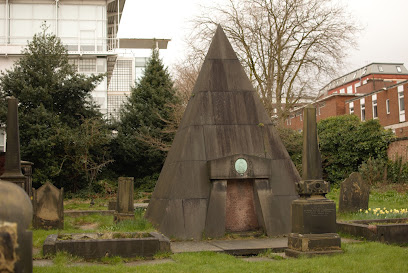
Viewing window to the Old Dock
Discover the world’s first commercial wet dock beneath Liverpool One, a gateway to the city’s maritime heritage and trading legacy.
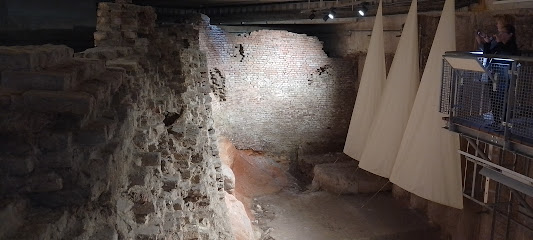
Wade Smith Mural by Paul Curtis
Explore the Wade Smith Mural by Paul Curtis in Liverpool, a vibrant expression of art reflecting the city's dynamic culture and heritage.
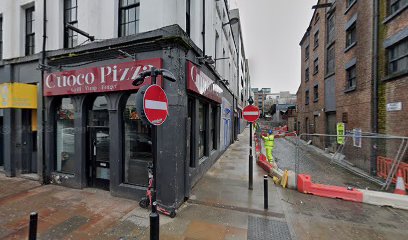
Unmissable attractions to see
Royal Albert Dock Liverpool
Historic Victorian dock transformed into Liverpool’s vibrant cultural and waterfront destination with museums, dining, and scenic views.

Liverpool Cathedral
Explore Britain’s largest cathedral, a neo-Gothic masterpiece with soaring vaults, stunning stained glass, and panoramic city views from its iconic tower.
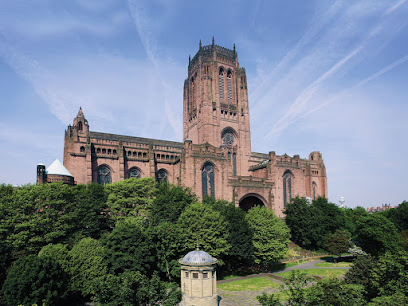
Museum of Liverpool
Discover Liverpool’s rich heritage at the world’s first national museum dedicated to a regional city, set on the iconic waterfront.
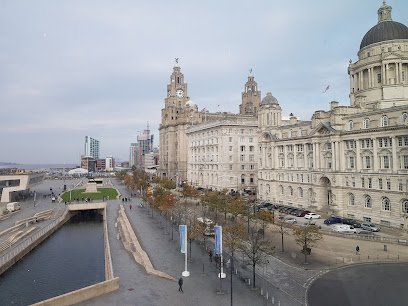
The Beatles Story Museum, Liverpool
Explore the immersive journey of The Beatles’ rise to fame at Liverpool’s iconic Royal Albert Dock museum.
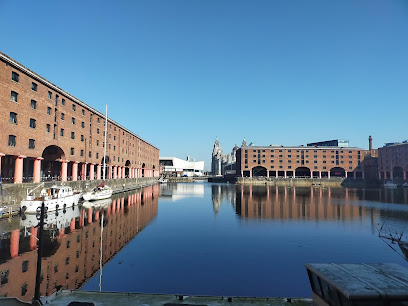
Maritime Museum
Explore Liverpool’s maritime heritage at the free Merseyside Maritime Museum, home to Titanic tales, ship models, and powerful historical exhibits.
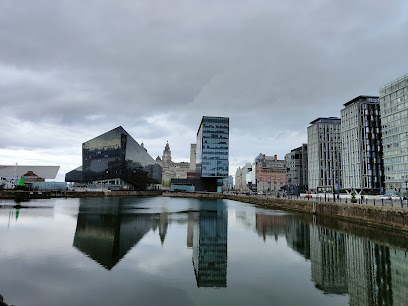
The British Music Experience
Explore the vibrant history of British pop and rock music through iconic memorabilia and interactive experiences in Liverpool’s Cunard Building.
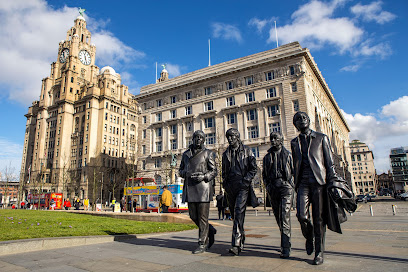
Quirky Quarter
Dive into Liverpool’s playful world of illusions and interactive puzzles at Quirky Quarter, where perception meets creativity for all ages.

Royal Liver Building 360 Tour
Discover Liverpool’s iconic Royal Liver Building with an immersive 360° tour featuring stunning skyline views and rich local history.
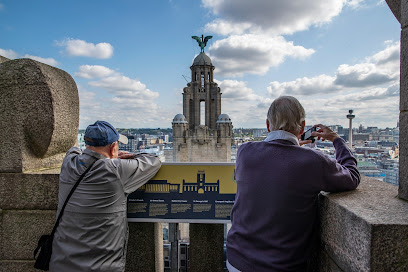
Essential places to dine
Mowgli Street Food Bold Street
Experience authentic Indian street food bursting with bold flavors and vibrant atmosphere in the heart of Liverpool’s Bold Street.
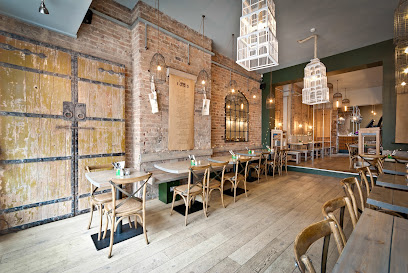
Amalia - Italian Restaurant Liverpool
Experience authentic Italian flavors and warm hospitality at Amalia, Liverpool’s beloved family-inspired Italian restaurant in Campbell Square.
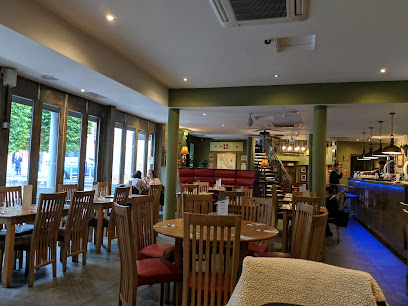
Alma De Cuba
Experience vibrant Cuban culture and cuisine in Liverpool’s stunning former St Peters Church, blending historic charm with lively dining and entertainment.
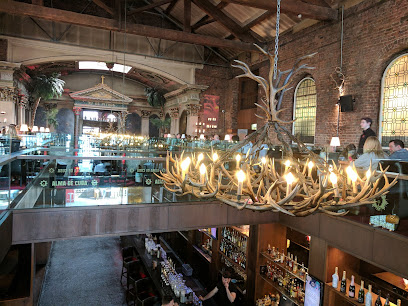
Almost Famous Liverpool
Lively American-style burger joint in Liverpool’s Ropewalks, famed for oversized burgers, indulgent sides, and a vibrant, graffiti-filled atmosphere.
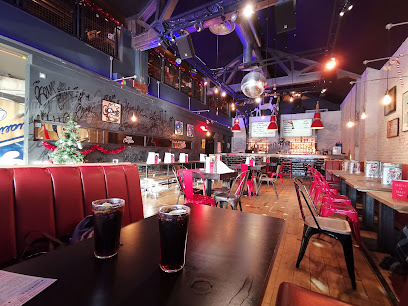
Villa Romana - Italian Restaurant Liverpool
Experience authentic Italian flavors and warm hospitality in the heart of Liverpool at Villa Romana, a rustic and inviting city centre gem.
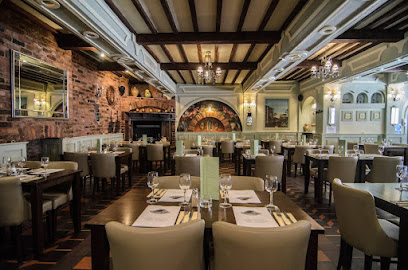
Cowshed Liverpool
A cozy, intimate steakhouse in Liverpool’s city centre, serving expertly cooked beef with attentive service and a unique historic setting.
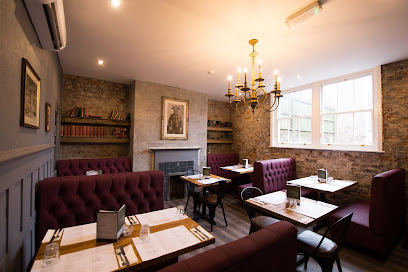
Maray Bold Street
Discover vibrant Mediterranean and Middle Eastern small plates with bold flavours and plant-based options in the heart of Liverpool’s Bold Street.
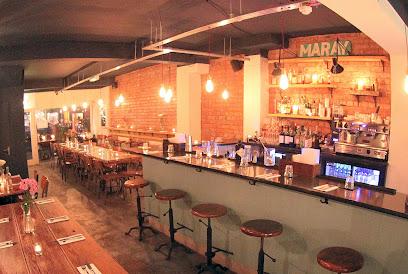
La Finca Eivissa
Experience the vibrant spirit of Ibiza with fusion tapas, cocktails, and live DJs in the heart of Liverpool city centre.
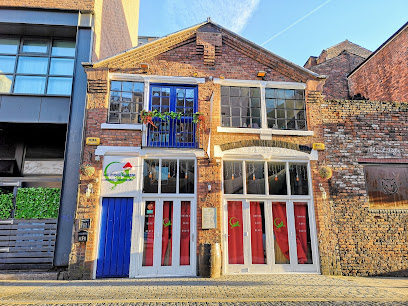
Wreck Bistro
A vibrant Liverpool bistro blending inventive cuisine, warm ambiance, and community spirit in the heart of Ropewalks.
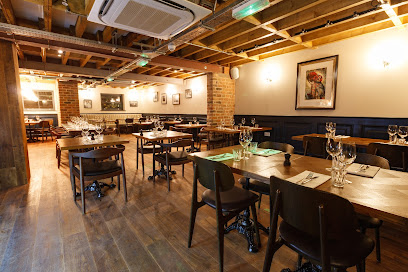
Ropewalks Bar And Kitchen
Stylish and welcoming, Ropewalks Bar And Kitchen serves hearty British and international dishes in Liverpool’s vibrant city center.
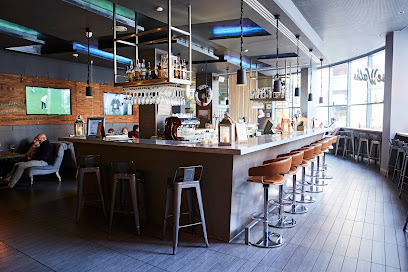
Markets, malls and hidden boutiques
Utility
Liverpool's go-to for quirky gifts, unique cards, and design delights—independent charm packed with playful, original treasures on vibrant Manesty's Lane.
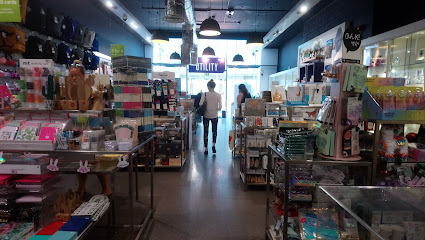
Resurrection
Liverpool's legendary streetwear haven: vintage roots, branded edge, tattoos, barber, records, and café vibes on bohemian Bold Street.
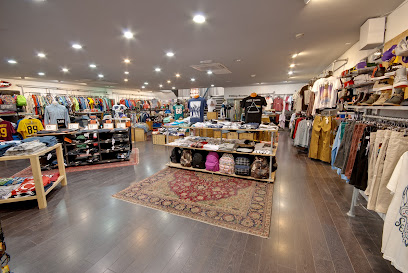
KENJI Liverpool ONE
Discover cute plushies, quirky gifts, and local makers in Liverpool ONE's playful arcade-gift haven—perfect for unique souvenirs and fun finds.
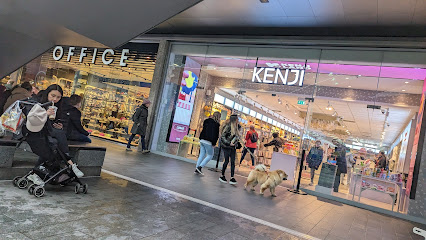
COW Liverpool
A compact Bold Street vintage haven where curated retro clothes, approachable staff and frequent one-off finds reward close, unhurried browsing.
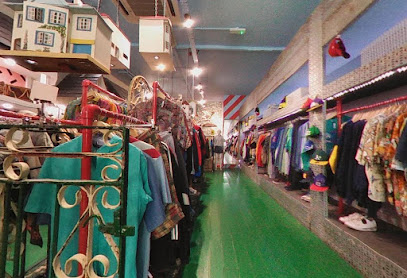
Pop Boutique
Dive into decades of retro style at Pop Boutique, Liverpool's go-to vintage shop on bohemian Bold Street, where 50s silk meets 90s flair.
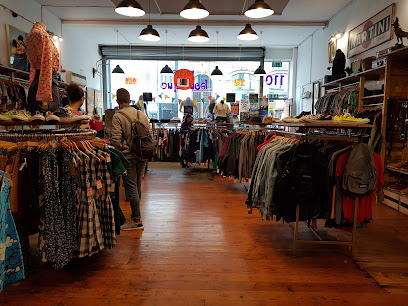
Soho's Liverpool
Uncover the essence of Liverpool's fashion at Soho's, where vintage meets contemporary in a vibrant clothing destination.
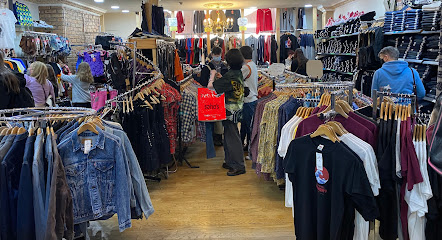
Utility Gift Store
Quirky gifts and unique cards on Liverpool's Bold Street—independent style for every occasion.
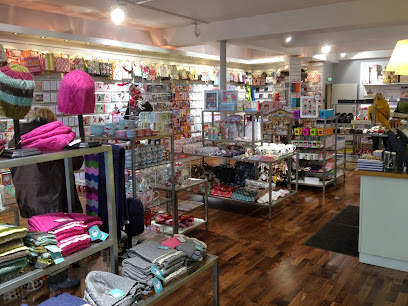
Oliver Bonas
Colourful, design-led fashion and homeware in Liverpool ONE — a boutique atmosphere for stylish gifts and everyday statement pieces.
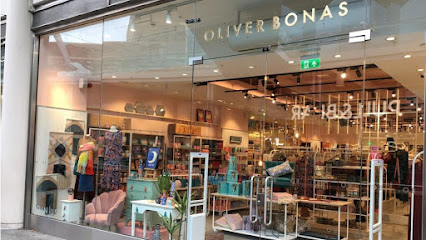
F&G Discounts
Explore unique gifts and souvenirs at F&G Discounts, the ultimate gift shop in St. John's Precinct, Liverpool.
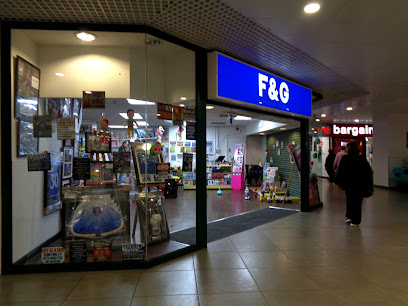
Beat That
Unearth retro gems at Beat That, Liverpool's quirky vintage haven on Concert Street, blending punk edge with timeless thrift treasures in the Ropewalks buzz.
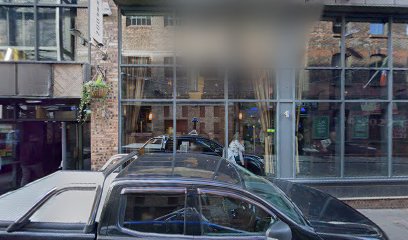
Essential bars & hidden hideouts
Alma De Cuba
A converted church on Seel Street where Cuban cocktails, live music and theatrical dining meet under vaulted brick arches.
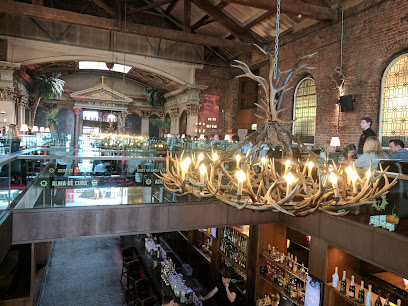
The Lime Kiln - JD Wetherspoon
Affordable ales and hearty meals in a historic warehouse pub at the pulse of Liverpool's nightlife district—daytime calm meets evening energy.
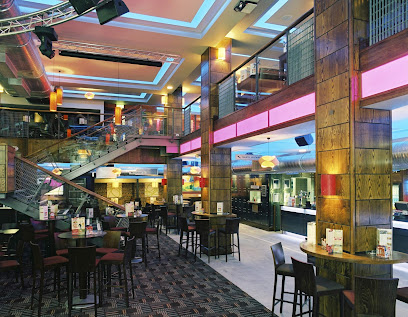
Kazimier Garden
Liverpool's original garden bar: quirky outdoor oasis with craft brews, live gigs, and fairy-lit magic in the heart of Ropewalks.
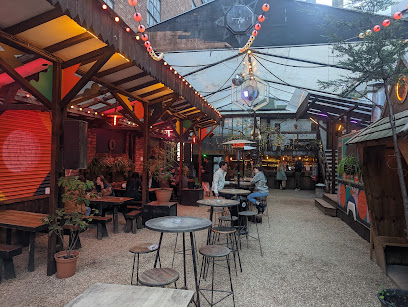
Be At One - Liverpool
Liverpool's cocktail haven with 100+ mixes, 2-for-1 happy hours, and masterclass vibes—ignite your night on Seel Street.
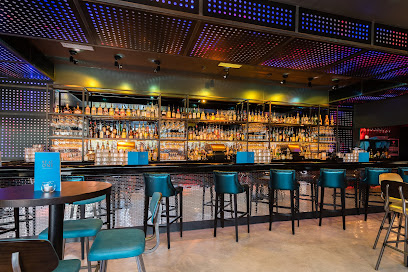
Alcotraz Liverpool: Cell Block Three-Six
Smuggle liquor, don the jumpsuit, and sip bespoke cocktails in a theatrical prison speakeasy—Alcotraz Liverpool delivers 105 minutes of immersive intrigue and mixology mastery.
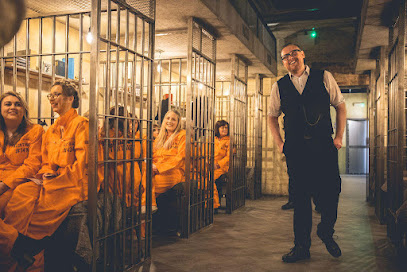
Salt Dog Slim's
Liverpool's dive bar legend: chili dogs, world beers, killer cocktails, and secret speakeasy vibes on buzzing Seel Street.
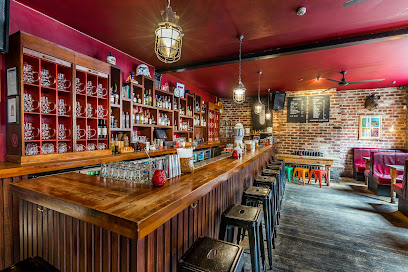
Motel Bar
A compact, theatrical dive-cocktail bar on Fleet Street — late licences, hand-crafted cocktails and live band karaoke in Ropewalks.
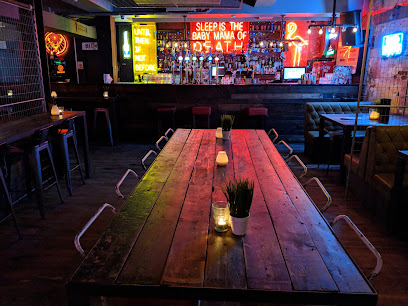
The Oracle
Liverpool's secret speakeasy where cocktails meet close-up magic—buzz in for illusions, tarot, and vintage vibes that defy reality.
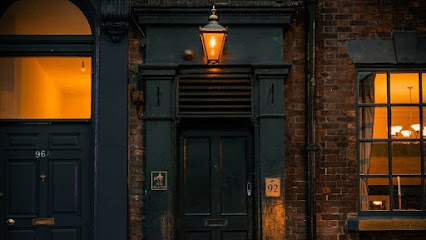
MOLOKO
A music-led cocktail bar in the Old Stables with a beer garden, late DJs and an over-25s disco energy for evening socialising.
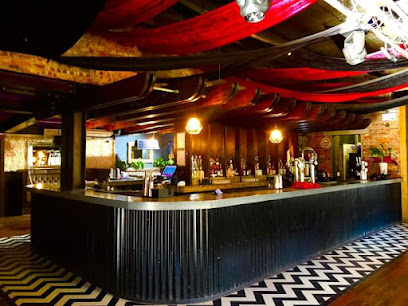
Bar Bodega
Liverpool's underground disco den: Ibizan house beats in a brick cellar nightclub, pulsing late into the night with cocktails and private party vibes.
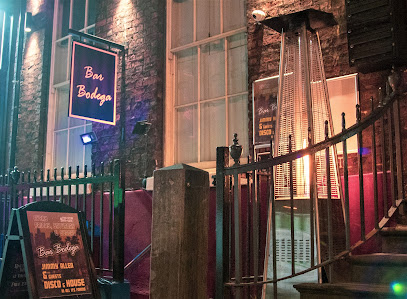
Local Phrases
-
- HelloAlright
[al-rite] - GoodbyeTa-ra
[ta-ra] - YesAye
[eye] - NoNah
[nah] - Please/You're welcomePlease/No worries
[pleez/no wor-eez] - Thank youCheers
[cheers] - Excuse me/SorrySorry
[sor-ee] - How are you?Alright?
[al-rite?] - Fine. And you?Sound. You?
[sound. yoo?] - Do you speak English?Do you speak English?
[Do yoo speak Ing-lish?] - I don't understandI don't get it
[I don't get it]
- HelloAlright
-
- I'd like to see the menu, pleaseCan I have the menu, please
[Can I hav the menu, please] - I don't eat meatI don't eat meat
[I don't eat meet] - Cheers!Cheers!
[cheers!] - I would like to pay, pleaseCan I pay, please
[Can I pay, please]
- I'd like to see the menu, pleaseCan I have the menu, please
-
- Help!Help!
[Help!] - Go away!Clear off!
[Clear off!] - Call the Police!Ring the bizzies!
[Ring the bizz-ees!] - Call a doctor!Get a quack!
[Get a quack!] - I'm lostI'm lost
[I'm lost] - I'm illI'm poorly
[I'm poor-lee]
- Help!Help!
-
- I'd like to buy...I wanna buy...
[I wanna buy...] - I'm just lookingJust having a gander
[Just havin a gan-der] - How much is it?How much is that?
[How much is that?] - That's too expensiveThat's a bit dear
[That's a bit deer] - Can you lower the price?Can you do it cheaper?
[Can you do it cheeper?]
- I'd like to buy...I wanna buy...
-
- What time is it?What's the time?
[What's the time?] - It's one o'clockIt's one
[It's one] - Half past (10)Half ten
[Half ten] - MorningMorning
[Morning] - AfternoonAfternoon
[Afternoon] - EveningEvening
[Evening] - YesterdayYesterdee
[Yester-dee] - TodayToday
[Today] - TomorrowTomorrow
[Tomorrow] - 1One
[One] - 2Two
[Two] - 3Three
[Three] - 4Four
[Four] - 5Five
[Five] - 6Six
[Six] - 7Seven
[Seven] - 8Eight
[Eight] - 9Nine
[Nine] - 10Ten
[Ten]
- What time is it?What's the time?
-
- Where's a/the...?Where's the...?
[Where's the...?] - What's the address?Where's that to?
[Where's that to?] - Can you show me (on the map)?Can you show me (on the map)?
[Can you show me (on the map)?] - When's the next (bus)?When's the next (bus)?
[When's the next (bus)?] - A ticket (to ....)A ticket (to ....)
[A ticket (to ....)]
- Where's a/the...?Where's the...?
History of Ropewalks
-
Ropewalks, situated in the heart of Liverpool, derives its name from the rope-making industry that flourished in the area during the 18th century. The long, narrow streets were once lined with ropewalks—long, covered structures where ropes were spun, essential for the maritime trade that Liverpool was known for. This industry was crucial for shipbuilding and the naval trade, as Liverpool emerged as a major port city during this period.
-
In the 19th century, Liverpool's significance as a trading port grew exponentially, fueled by the transatlantic slave trade and the cotton industry. The Ropewalks area became a bustling hub for merchants and shipbuilders. The construction of the Albert Dock in 1846 further solidified Liverpool's status as a key player in global trade, bolstering the local economy and contributing to the development of surrounding neighborhoods, including Ropewalks.
-
As the maritime industry declined in the mid-20th century, the Ropewalks area experienced significant changes. Many of the historic buildings that once housed ropewalks were repurposed, transitioning from industrial use to cultural and residential spaces. This shift marked the beginning of an artistic renaissance, as galleries, theatres, and music venues began to emerge, drawing in a new wave of creativity and cultural expression.
-
In the late 20th and early 21st centuries, Ropewalks underwent extensive regeneration. The area's unique character and historical significance attracted attention from developers and investors, leading to a mix of gentrification and preservation. The establishment of the Liverpool ONE shopping complex and the growth of the nightlife scene contributed to a vibrant atmosphere, making Ropewalks a popular destination for both locals and tourists.
-
Today, Ropewalks is recognized as one of Liverpool's cultural hotspots, celebrated for its diverse mix of art, music, and nightlife. The area's history is reflected in its architecture, with a blend of preserved historic buildings and modern developments. Events such as the Liverpool Biennial and the Sound City festival showcase the area's artistic vibrancy, underscoring its evolution from a centre of maritime industry to a flourishing cultural district.
Ropewalks Essentials
-
Ropewalks is centrally located in Liverpool, making it easily accessible from other neighborhoods. If you are coming from Liverpool Lime Street Station, it is a short 10-minute walk. Alternatively, you can catch a bus or a taxi from various points in the city. The nearest train stations, including Liverpool Central and Liverpool James Street, are also within walking distance.
-
Ropewalks is a compact neighborhood best explored on foot. However, if you prefer public transport, local buses serve the area frequently, and the Merseyrail network connects you to other parts of Liverpool and beyond. Bicycles can be rented nearby for those who wish to explore on two wheels, and there are bike lanes available.
-
Ropewalks is generally a safe area for tourists, but like any urban environment, it is wise to remain aware of your surroundings. Avoid walking alone at night in less crowded areas, particularly around the edges of the neighborhood. Areas like the outskirts of the city center may report higher crime rates, so it is advisable to stay vigilant, especially regarding personal belongings.
-
In case of an emergency, dial 999 for police, fire, or medical assistance. The nearest hospital is the Royal Liverpool University Hospital, which provides comprehensive medical services. Always ensure you have travel insurance that covers emergencies. For non-urgent health issues, local pharmacies can provide over-the-counter medications.
-
Fashion: Do dress appropriately for the occasion; while casual is acceptable, avoid overly revealing attire at upscale venues. Religion: Do respect local customs, especially when visiting places of worship. Public Transport: Do give up your seat for the elderly and disabled; Don’t play loud music or talk excessively on public transport. Greetings: Do greet locals with a friendly smile and handshake; Don’t engage in overly personal questions until you know someone better. Eating & Drinking: Do try local specialties at cafes and restaurants; Don’t litter or leave food waste in public areas.
-
To experience Ropewalks like a local, explore the independent shops and cafes tucked away in its streets. Attend local events and exhibitions at venues like the Baltic Centre for Contemporary Art. Engage with locals by joining guided walking tours that delve into the history and culture of the area. Don't miss the opportunity to visit the nearby historic sites, such as the St. Luke's Bombed Out Church, which offers a glimpse into Liverpool's past.
Nearby Cities to Ropewalks
-
Things To Do in Chester
-
Things To Do in Manchester
-
Things To Do in Sheffield
-
Things To Do in Leeds
-
Things To Do in Birmingham
-
Things To Do in Douglas
-
Things To Do in Onchan
-
Things To Do in Nottingham
-
Things To Do in Laxey
-
Things To Do in Castletown
-
Things To Do in Ballasalla
-
Things To Do in Port St Mary
-
Things To Do in Ramsey
-
Things To Do in Port Erin
-
Things To Do in York










